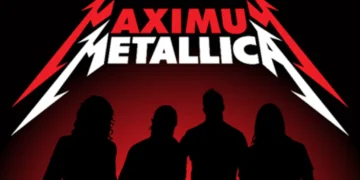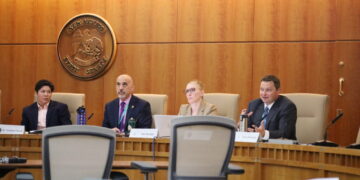Photo via Getty Images
Gov. Katie Hobbs signed legislation that will require Arizonans to prove they are at least 18 years old before accessing online pornography by either submitting a government-issued ID or using an age-verification system that relies on “transactional data.”
The bill, run by freshman Republican lawmaker Nick Kupper, R-Surprise, is similar to legislation Republicans have pushed in previous years that failed to gain support due to constitutional concerns.
Kupper’s House Bill 2112 is similar to efforts to crack down on pornography access in other states, such as Louisiana and Texas, and he cited Texas’ law as the inspiration for his legislation.
Lobbyists representing the adult entertainment industry and the American Civil Liberties Union have voiced concerns that the bill’s language could loop in non-pornographic material and would do little to prevent children from seeing pornographic content.
They added that it could push users to “black market” sites outside of the United States where child sex abuse material or other malicious material may reside.
The industry has been advocating for device-level solutions that are backed by organizations such as the International Center for Missing and Exploited Children, which has also voiced concerns with laws like the one Kupper has proposed.
Kupper celebrated Hobbs’ signing of the bill.
“Hardcore pornography has been just one click away from kids for too long, and the companies behind it have looked the other way while cashing in. This law forces them to take responsibility and keeps minors off their platforms,” Kupper said in a written statement.
The law also allows for lawsuits to be brought against websites if they do not comply with the law. They can face fines of up to $10,000 for each day they are in non-compliance.
Other states that have implemented age verification have seen the use of virtual private networks skyrocket and the popularity of more illicit sites growing in popularity as legitimate website operators have been working to block IP addresses from those states.
Kupper has previously expressed doubts that a child could use a VPN or other means to get around the age verification system.
Groups like the ACLU have voiced their concerns that the law could be weaponized to block minors from accessing websites that have information about sex, but aren’t pornographic, including websites dedicated to HIV/AIDS, sex education and the LGBTQ community.
Kupper has shot back at that criticism saying the bill is aimed at content that is, as the bill states, is “patently offensive with respect to minors” and depicts sexual acts and “lacks serious literary, artistic, political or scientific value for minors.”
This isn’t Arizona’s first time trying to change state law to keep juveniles from accessing online pornography. In 2000, lawmakers extended the “harmful to minors” statute to include the internet, but it was later struck down as unconstitutional.
Other states that have enacted similar laws are facing legal challenges, and tech behemoths are fighting over the exact future of how these types of bills will play out.
The bill passed out of both chambers largely along party lines with only one Democrat in the Senate, Kiana Sears, and two in the House, where Seth Blattman and Kevin Volk voted to pass it.
YOU MAKE OUR WORK POSSIBLE.
This post was originally authored and published by Jerod MacDonald-Evoy from AZ Mirror via RSS Feed. Join today to get your news feed on Nationwide Report®.



























